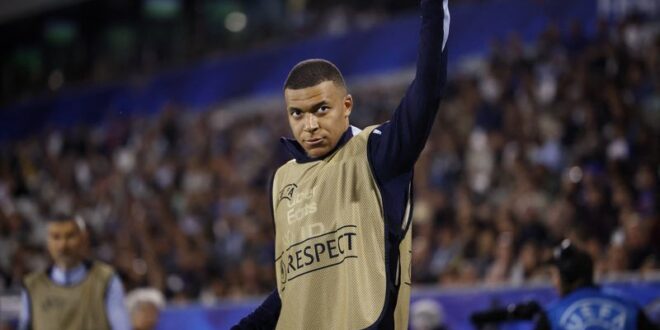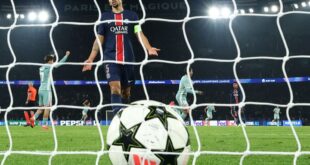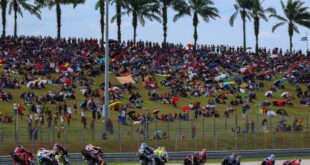PARIS (Reuters) – In the Paris suburb where footballer Kylian Mbappe grew up, 22-year old Leana Aggoune said that she agrees with the French striker’s call on young people to vote in the French parliamentary election this month.
Many people here are children of immigrants, like the six-time Ligue 1 top goal scorer and national team captain, who was born in Paris to parents of Cameroonian and Algerian heritage.
Aggoune, a careworker, had not cared much about the European election earlier this month, or the previous parliamentary election two years ago. But she feels it is different this time, with the far-right National Rally (RN) leading in surveys.
“I feel like it is going to affect us more, or maybe I’m more conscious, but I feel like it is important for our future,” said Aggoune, speaking outside a fast food restaurant in Bondy.
“They want to make us leave, they’re racist and against us,” she said of the RN.
The RN strongly denies it is racist but proposes anti-immigration policies, including to limit welfare benefits, social housing and jobs for non-French citizens, stop family reunification of immigrants and limit citizenship. It is hostile to Islam, having proposed in the past to ban the hijab in public spaces and close down mosques and schools.
Mbappe said during a press conference on the eve of France’s opening game at Euro2024 that “the extremes are knocking at the doors of power… we need to identify with our values – of diversity, tolerance and respect”.
He was indirect about his own politics but said he supported the same values and position as his teammate Marcus Thuram, who has clearly called for voters to make sure that the RN “does not pass”.
Some people in Bondy were unhappy that Mbappe, as the face of the national team, wasn’t bolder in spelling out exactly what he meant.
“It’s a bit disappointing,” said Bahia Soukouna, a 24 year old law student who is planning on voting for the left coalition, the Front Populaire.
“He takes a position without really taking a position and he puts on the same level the National Rally and the Front Populaire, who we cannot qualify as extremist.”
Nearly 49% of French voters, including more than 60% of those aged 34 and younger, stayed home during the European election. The RN’s rivals are hoping higher stakes in a national election will bring a bigger turnout from those who want to block the far right.
In the neighbourhood of Bondy, participation was 10% lower than the national average.
Celine Braconnier, director of Sciences-Po Saint-Germain and specialist in abstention, said that participation could be higher than in other parliamentary elections because “it’s an intense and short campaign, there is an omnipresence in the media, a clarification of the stakes.”
Thibault Ngompe Tamiam, 25 year-old events organiser, said that his generation doesn’t vote because “we don’t see ourselves in politics. [Prime minister] Gabriel Attal talks about unemployment benefits but he has never been refused for a job, never had to sign on.”
He said that he will vote against the RN but has not yet decided which party to support.
(Reporting by Layli Foroudi; Editing by Peter Graff)
 BeritaKini.biz Berita Viral Terkini di Malaysia
BeritaKini.biz Berita Viral Terkini di Malaysia





